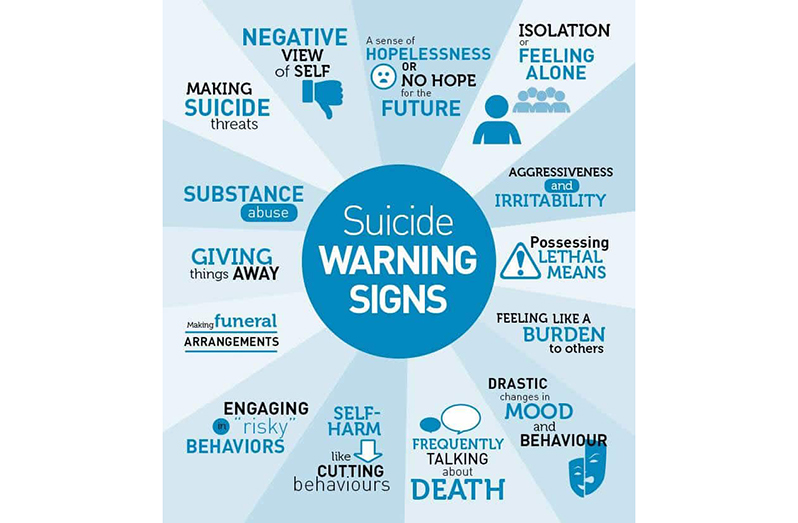FOR far too long, suicide has been marked by stigma that won’t seem to go away. Even with the many sensitisation campaigns and sensitivities that exist, there is still stigma and discrimination. Suicide is death caused by injuring oneself with the intent to die. September 10th was celebrated as World Suicide Prevention Day. As such, I wanted to dedicate this week’s column to this pressing issue to raise more awareness of it. The theme for this year is, “Changing the Narrative.” This suggests that we need to start breaking barriers and reducing the stigma around suicide.
 Perhaps one of the most heartbreaking myths about suicide is that persons who experience such thoughts are crazy or delusional. This is not true. It is so much deeper than that. It is unfair to generalise every single person who might experience suicidal thoughts as a collective with a label. People who might be experiencing suicidal thoughts might be struggling with extreme grief, sadness, or distress. I want you all to remember one thing—that struggle or pain will not last forever. Suicide is a permanent solution to a temporary problem. Almost every problem you encounter can be resolved. You simply have to ask for help.
Perhaps one of the most heartbreaking myths about suicide is that persons who experience such thoughts are crazy or delusional. This is not true. It is so much deeper than that. It is unfair to generalise every single person who might experience suicidal thoughts as a collective with a label. People who might be experiencing suicidal thoughts might be struggling with extreme grief, sadness, or distress. I want you all to remember one thing—that struggle or pain will not last forever. Suicide is a permanent solution to a temporary problem. Almost every problem you encounter can be resolved. You simply have to ask for help.
Suicide ends your life and eliminates any possibility of ever fixing your problems, so you can live a good, better person. Suicide also does not end your pain. It simply passes your pain onto your friends and family. Don’t you think your family or friends would be devastated by your loss of life? Absolutely—you are valuable and deserve to live. Even when we think someone might already have their mind made up—you can change it. Most suicidal people simply want the pain or suffering they’re experiencing to stop. That impulse to kill oneself does not last forever. Suicide is unpredictable, yes, but also preventable.
As such, continuous advocacy and support must be available nationwide. Suicide is also preventable when we look out for others. If you’ve noticed these signs in someone, then they might be struggling with suicidal thoughts. They might start talking about killing oneself, or self-harm, or writing about suicide. They might also gather weapons to use, such as poisonous substances, pills, weapons, etc. They may also start saying goodbyes or getting their affairs in order, such as wills. You should also look out for signs of withdrawal from social groups or spaces, as well as increased use of drug use or alcohol use.
It is a collective effort to reduce the stigma and myths attached to suicide and to move forward with definite actions that will empower those affected by suicidal thoughts—not belittle. I want to stress the importance of remembering that suicide is preventable. As such, I’ve put together some necessary information that might be useful for the context of Guyana below.
If you or someone you know is experiencing suicidal thoughts, here are some helpful tips:
- Call the 914 hotline, or share the hotline number with someone who might be experiencing suicidal thoughts
- Call the Guyana Inter-agency Suicide Helpline, which operates 24 hours at 223-0001/223-0009/223-0818/ 600-7896/623-4444
- Stay connected. Do not let your friend experiencing suicidal thoughts feel isolated or alone. Be their friend.
- Visit the Psychiatric hospital or the Ministry of Health’s Mental Health Unit at the Georgetown Public Hospital to see a psychologist, especially if you have underlying conditions such as depression.
- Tell a trusted associate, therapist or friend.












